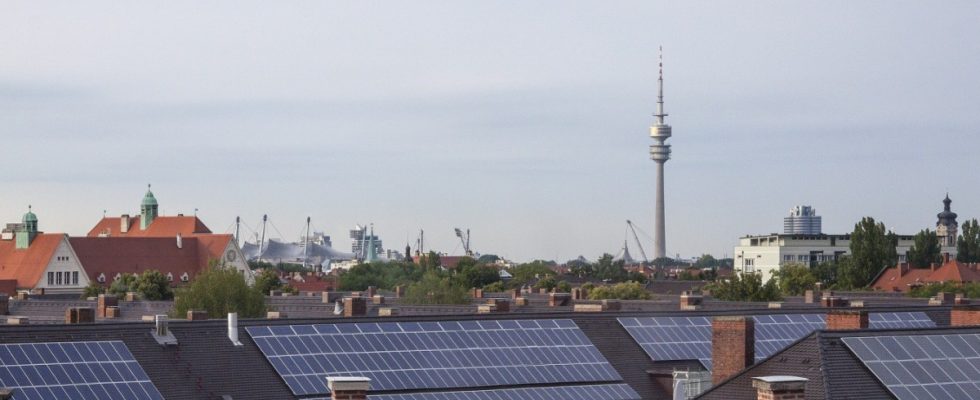Of course, when there is a debate in the city council, it is not entirely without teasing. It was no different on Tuesday when the vote on the “Solar Munich Master Plan” was held. After the CSU representative Sebastian Schall had signaled his party’s broad agreement to the presentation by speaker Christine Kugler and had expressed “great interest that we are making progress with photovoltaics”, Greens spokesman Dominik Krause felt compelled to step up to the microphone: In the committee For climate and environmental protection, the CSU is clearly in favor of photovoltaics, but in other committees it is preventing the implementation of corresponding plans, Krause stated and advised the CSU to “go into an internal retreat” in order to find a consistent stance.
Apart from this detour, the representatives of all factions were surprisingly harmonious. After a few marginal changes, they voted unanimously for 37 of the 38 points in the speaker’s proposal. CSU and Free Voters only rejected point 19, possibly in order to at least rouse some opposition: It was about how the department for urban planning took over the master plan in the land use planning.
With the master plan, the city wants to push ahead with the energy transition, herald the “beginning of a solar decade”, as Mayor Katrin Habenschaden (Greens) put it, and become climate-neutral in the foreseeable future. Mona Fuchs, co-spokeswoman for the Greens parliamentary group, said: “Munich has 1,800 hours of sunshine a year, which we get for free – we have to make use of them now.” From 2030, Munich wants to cover a quarter of its inner-city electricity consumption with solar energy. “We’re on the right track,” said Mayor Habenschaden at the committee meeting: “Photovoltaics are booming like never before in this city.”
In the first half of 2023, more capacity was already being built up by photovoltaic systems than in previous years, habenschaden calculated. With a photovoltaic expansion of currently more than ten megawatts peak (MWp), the growth of 15 MWp targeted for this year could be significantly exceeded. Annual increases of initially 20 MWp (2024) and 30 MWp (2025) are planned in the phased plan; later this is to be increased to 60 MWp per year (from 2026) and even 100 MWp (from 2030). The public utilities are to provide half of the new photovoltaic capacity; the city is hoping for private initiatives for the other half. The FDP man Fritz Roth warned that they should be “benevolently and constructively supported” by the municipal utilities.
The greatest challenges in implementing the plan are likely to be identifying suitable areas for photovoltaic systems and then finding enough craftsmen to install them. In order to immediately identify further obstacles to implementation, the measures in the master plan should be checked regularly. Not only Marie Burneleit (Left/The Party) hopes for elementary progress through the master plan: “We can no longer look forward to photovoltaics on parking ticket machines. We have to start with larger areas.”

